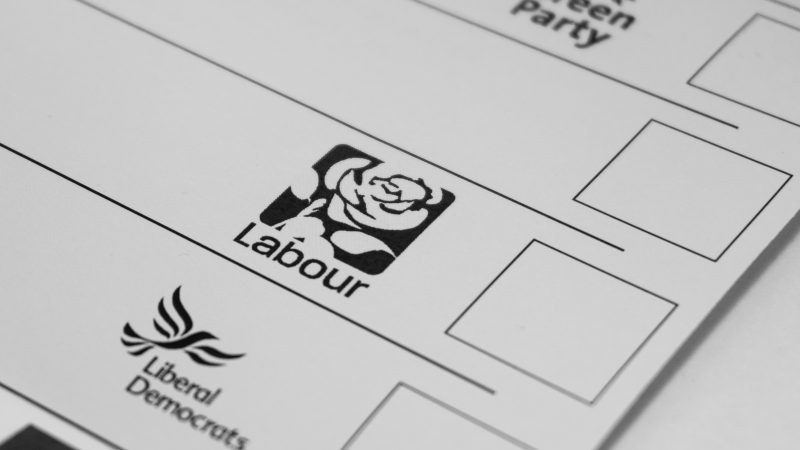
“The thing about Boris is he’s funny, charismatic,” a voter in Bury, Greater Manchester said to me a few weeks ago. “He’s got presence. But I worry other leaders don’t take him seriously, don’t respect him, because they don’t trust him. I don’t trust him. I don’t think anyone does, which isn’t great for our country.”
Many people want Labour to develop a wider argument about national purpose and why Britain needs a Labour government to advance it. Some call this a vision: a story that binds together multiple policy ideas, situates them in the present and stitches together attacks on the Tories by relating them to a wider argument. That story should be about democracy.
While this voter from Bury – who voted Tory in 2017 and 2019 but Labour from 1994 to 2010 – didn’t use the word democracy, I think that’s what she meant. In referencing the Prime Minister’s relationship to other world leaders, she was thinking about the war in Ukraine. As a self-governing democracy is ravaged by an imperialist autocracy, democracy is once again becoming the defining axis of geopolitical competition. Those who are for it – Ukraine, the US, the UK, Europe, Japan, South Korea, Taiwan and, more reluctantly, India and Israel – versus those who are against it – Russia, China, North Korea, Syria and Iran.
Britain has a vital role in that world. Not only are we the major military and intelligence power in Europe, with close ties to both the US and democracies like India and Israel, we are also arguably the world’s oldest democracy, home to the mother of parliaments. This is something Labour doesn’t talk about often enough or with sufficient conviction.
We have so much history to be proud of. The Scottish Declaration of Arbroath was one the first moments in which a self-governing people asserted sovereignty against arbitrary monarchic and religious power. The English revolution was the first democratic revolution in the modern world, inspiring revolutions in America and France, and then across Europe. Time and again, when other democracies have stuttered and faltered, ours has evolved and expanded.
This combination of military strength and unique history means the defence of democracy will be a vital mission for Britain over the coming decades. Labour must own that story. We must give patriotism content, showing we have the leadership and ideas to defend and extend democracy.
The defence of democracy helps to frame the excellent policy work already underway, from the everyday economy to the constitutional commission. Defending democracy requires security: a more independent energy system and credible national finances. It requires prosperity: families need greater economic security, regional imbalances must urgently be addressed and infrastructure needs huge investment to become more resilient. And it requires citizens who feel respected: kids with world-class educations, workers whose national contribution is properly valued and communities with local institutions that involve them in decision-making.
And don’t let anyone tell you democracy is too abstract for voters up here. Voters in ‘Red Wall’ seats obviously want policy ideas that relate directly to their lives. But they also want those ideas to be part of a wider story about the country and their future. Neither on its own is enough, but what we lack is the story, not the policies. Voters may not voice everyday concerns in the language of democracy, but Labour’s job is to weave everyday concerns into a story about our past and future. Done properly, voters in places like Bury may find an argument about democracy compelling, even rousing.
Democracy also helps frame attacks on the Tories, moving from competence to values. The rule of law is probably Britain’s greatest invention, and yet, it’s the rule of law Johnson has violated. Telling the truth is what makes parliament work, and yet, the Prime Minister has lied to parliament. We cannot allow leaders to break the rules they make, because it weakens our democracy and corrodes trust in political institutions.
When the Tories wilfully disregard national rules and laws, Labour must respond not simply with moral outrage about individual incidents. We must make each an example of how this Tory government is denigrating British democracy. How can Britain lead the world when our own leaders so obviously lack the credibility and moral authority to lead the British people?
In just two years, Labour has built an impressive reputation for trust and respect. Now, the political task is to show voters that a Labour government is what Britain needs to meet this moment, a story that ties what’s happening in the world to a better future that only Labour can deliver. As a recent Institute for Public Policy Research (IPPR) report showed, this is what a story about the defence and extension of democracy would do: push swing voters in marginal seats, like the woman I spoke to in Bury, from distrusting Johnson to supporting Keir Starmer.
Coalitions are being built to help tell that story. IPPR has a fantastic new programme on democratic renewal. The New Economics Foundation is leading compelling campaigns on participation and universal basic services, and there are innovative new efforts to build citizens’ power like the Civic Power Fund, NEON, the Centre for Progressive Change and Migrants4Labour. Over the coming months, people like me will be working hard to build and strengthen these coalitions across the country. The stage is set. Labour must grasp the opportunity to become the party of democracy in Britain.




More from LabourList
Turning the page? Labour’s recovery in the polls show a path to 2029 victory
Restoration announce recommendations for NEC candidates
‘Factionalism at the top is weakening Labour – and handing a gift to Reform’